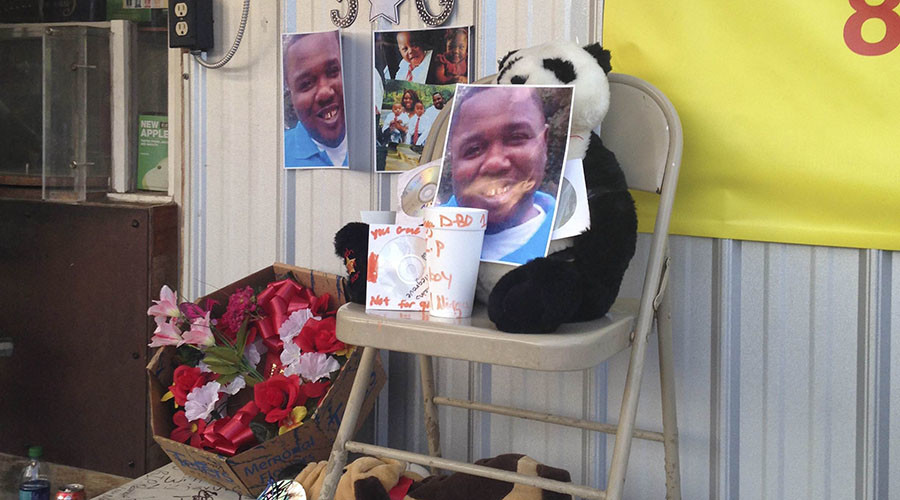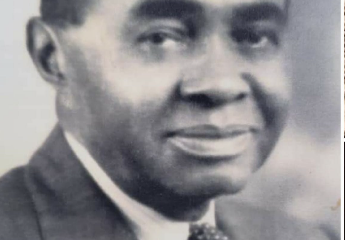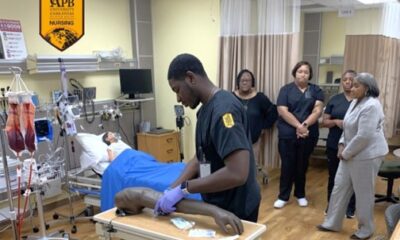News
Brutality in the Bayou

The Justice Department moved quickly to begin an investigation into the latest high-profile police-involved killing of a Black man. Baton Rouge police shot 37 year-old Alton Sterling while he was restrained on the ground in front of a convenience store where the owner says Sterling sold CD’s and the two became friends. It is also the latest installment in the outrage that many consider police brutality.
“I am waiting on Al Sharpton to arrive in Baton Rouge,” Carol Powell Lexing explained less than 24 hours after protests started in the city.
Powell is a distinguished and well-known civil rights attorney in Louisiana who is working on a case with Edmond Jordan, the attorney hired by Sterling’s family. Her name is synonymous with justice in a state where the legislature recently passed a law called “Blue Lives Matter” created to confer a “protected species” status on police killed during the line of duty.
Lexing is not a fan of the law. “Police have enough laws on the books. I think they are trying to co-op the phrase ‘Black Lives Matter.’ They still don’t get it.”
Lexing is quite familiar with the disconnect between police and African Americans. She argued one of the most memorable criminal cases in recent years that wound up before the United States Supreme Court where the justices reversed a lower court’s ruling and sided with Lexing. The case involved Baron “Scooter” Pike who died in police custody just days before he turned 21 years old.
Lexing took the case and hoped to maintain some personal distance, but it was virtually impossible. “I always put myself in my clients’ shoes. If something happened to my loved one, I would want someone who would fight for me to the bitter end,” she says.
It was 2008, and police departments were just starting to use tasers. The police stopped Pikes without reason or warrant, saying “We wanna talk to you.” He reportedly said, “I don’t have nothing to say to you,” and kept walking.
“They tasered him nine times, and he asked for medical help,” Lexing says. “The police filmed the whole thing, thinking they would use it to prove he had PCP in his system which he did not. You could see him falling out of the chair, and he said, ‘God’s gonna get y’all for killing me.’”
From the grave, Pikes’ words inspired Lexing. The Supreme Court justices pointed to the Fourth Amendment’s protection against unreasonable search and seizure, rejecting the officers’ argument that he was not aware of the law as it related to tasers.
It was the first case the Supreme Court heard involving tasers. Lexing says, “They had no reason to taser him.”
Today she is firmly in agreement with so many who have watched the video of the police officer firing the fatal bullets that took Alton Sterling’s life. More than most, Lexing knows the legal heft of a videotape even in Louisiana. It added credibility to Baron Pikes final hours, and it may do the same for Alton Sterling.

-

 Black History5 months ago
Black History5 months agoThe untold story of a Black woman who founded an Alabama hospital during Jim Crow
-

 Featured8 months ago
Featured8 months ago‘No Closure’ In Town Where Five Black Residents Were Either Murdered, Died Suspiciously Or Are Missing
-

 Black History9 months ago
Black History9 months agoBlack History Lost and Found: New Research Pieces Together the Life of Prominent Texas Surgeon and Activist
-

 Featured9 months ago
Featured9 months agoFounder of “The Folding Chair” Podcast Calls Montgomery’s Brawl ‘Karma’
-

 Featured8 months ago
Featured8 months agoThousands ‘Live Their Dream’ During National Black Business Month
-

 Featured10 months ago
Featured10 months agoJuneteenth And ‘246 Years Of Free Labor’ Are Key To Conversations About Reparations









